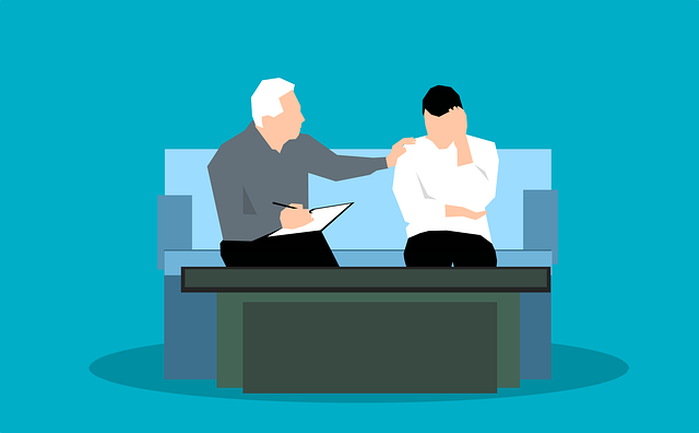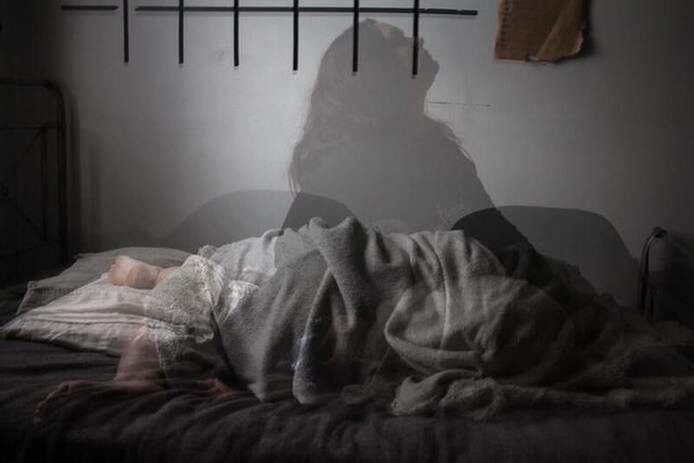The Intersection of Insomnia and Depression
Most people have experienced insomnia at some point in life, whether it is due to stress from work or school, lasting pain after a surgery, or perhaps excitement about a field trip the next day. This difficulty to fall asleep or maintain sleep is a complicated issue with both behavioral and biological risk factors. Insomnia can be caused by diseases such as sleep apnea. It may also increase the risk of other conditions, such as heart disease and obesity.
Depression, on the other hand, is a mental illness that is more complex and harder to treat. The word most commonly refers to major depressive disorder, as other diseases can also lead to depressive symptoms. Symptoms range from sadness to unexplained physical pain, and the causes can be both genetic and environmental.
Insomnia and depression can not only occur together, but can also affect each other, as described by a recent literature review. Depression is one possible cause of insomnia, for most patients with major depressive disorder report difficulty sleeping as one of the symptoms. Surprisingly, however, the effect of insomnia on depression may be more significant. Because chronic insomnia may lead to lasting poor mood, it can predispose people to depression. Indeed, this was the result of large-scale studies of patients with insomnia. Genetic studies and neuroimaging have also revealed overlaps in genes and brain abnormalities between the two conditions. Another less obvious connection between insomnia and depression is the fact that overdose of sedative-hypnotics, commonly known as sleep pills, is life-threatening and thus complicates treatment of suicidal ideation potentially resulting from depression.
So how does this relationship affect treatment of the two conditions when someone suffers from both? It would certainly be helpful if treatment of insomnia could alleviate symptoms of depression in patients with both illnesses. Although scientists have been studying certain drugs commonly used to treat insomnia, there is no definitive conclusion regarding their effect on depression yet. Another potential treatment specifically targeting suicidal ideation is cognitive-behavioral therapy for insomnia (CBT-I), in which a therapist helps patients modify their thinking and actions in coping with symptoms. Unfortunately, only mixed results of CBT-I on depressive symptoms have been reached so far; more data from large-scale studies are needed.
Depression, on the other hand, is a mental illness that is more complex and harder to treat. The word most commonly refers to major depressive disorder, as other diseases can also lead to depressive symptoms. Symptoms range from sadness to unexplained physical pain, and the causes can be both genetic and environmental.
Insomnia and depression can not only occur together, but can also affect each other, as described by a recent literature review. Depression is one possible cause of insomnia, for most patients with major depressive disorder report difficulty sleeping as one of the symptoms. Surprisingly, however, the effect of insomnia on depression may be more significant. Because chronic insomnia may lead to lasting poor mood, it can predispose people to depression. Indeed, this was the result of large-scale studies of patients with insomnia. Genetic studies and neuroimaging have also revealed overlaps in genes and brain abnormalities between the two conditions. Another less obvious connection between insomnia and depression is the fact that overdose of sedative-hypnotics, commonly known as sleep pills, is life-threatening and thus complicates treatment of suicidal ideation potentially resulting from depression.
So how does this relationship affect treatment of the two conditions when someone suffers from both? It would certainly be helpful if treatment of insomnia could alleviate symptoms of depression in patients with both illnesses. Although scientists have been studying certain drugs commonly used to treat insomnia, there is no definitive conclusion regarding their effect on depression yet. Another potential treatment specifically targeting suicidal ideation is cognitive-behavioral therapy for insomnia (CBT-I), in which a therapist helps patients modify their thinking and actions in coping with symptoms. Unfortunately, only mixed results of CBT-I on depressive symptoms have been reached so far; more data from large-scale studies are needed.

In cognitive-behavioral therapy (CBT), patients work with a therapist to find certain thought and behavioral patterns that are not healthy and instead develop better strategies for solving problems that cause those unhealthy patterns. CBT has been used to treat depression, anxiety, eating disorders and other mental and non-mental diseases.
Image Source: mohamed_hassan
Medical fields have recently granted significant effort to disease prevention by identifying genetic, biological, and environmental cues that can be used to predict the likelihood of a certain disease. So, can treating insomnia prevent depression? Hopefully, the answer is yes, as insomnia is much easier to treat compared to depression. There are some positive results associated with digital CBT-I (dCBT-I): when patients of insomnia—both with and without depressive symptoms—were treated with dCBT-I, treatment that was effective for insomnia helped patients show remission of depression or decreased rates of developing depression. Encouraged by these findings, researchers are further targeting insomnia as a risk factor in treating or preventing depression.
Overall, the studies mentioned all emphasize the importance of better understanding insomnia, as well as its implications for improved diagnosis and treatment in depression. As simple and universal as the idea of “sleep” is, however, the authors of the review also voice their concern about a lack of precise and detailed understanding of the parameters of sleep quality. This is especially relevant for patients with depression because they can also develop hypersomnolence, which is the opposite of insomnia. It is also important to ensure new technology used for analyzing sleep is accurate when assessing patients. Furthermore, the general public could benefit significantly from products enabling more accessible testing to allow individualized analysis of sleep properties.
Overall, the studies mentioned all emphasize the importance of better understanding insomnia, as well as its implications for improved diagnosis and treatment in depression. As simple and universal as the idea of “sleep” is, however, the authors of the review also voice their concern about a lack of precise and detailed understanding of the parameters of sleep quality. This is especially relevant for patients with depression because they can also develop hypersomnolence, which is the opposite of insomnia. It is also important to ensure new technology used for analyzing sleep is accurate when assessing patients. Furthermore, the general public could benefit significantly from products enabling more accessible testing to allow individualized analysis of sleep properties.
Featured Image Source: Megan te Boekhorst
RELATED ARTICLES
|
Vertical Divider
|
Vertical Divider
|
Vertical Divider
|





